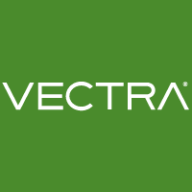



Find out what your peers are saying about Palo Alto Networks, Wiz, SentinelOne and others in Cloud-Native Application Protection Platforms (CNAPP).



SentinelOne Singularity Cloud Security protects cloud workloads, offering advanced threat detection and automated response. It integrates seamlessly with cloud environments and secures containerized applications and virtual machines against vulnerabilities.
SentinelOne Singularity Cloud Security is renowned for its efficiency in mitigating threats in real-time. The platform integrates effortlessly with existing cloud environments, ensuring robust cloud security management with minimal manual intervention. Securing containerized applications and virtual machines, it excels in threat intelligence and endpoint protection. However, improvements are needed in performance during high workload periods, and more integrations with third-party tools and better documentation would be beneficial. Users often find the installation process complex, support response times slow, and the dashboard's navigation unintuitive.
What are the key features of SentinelOne Singularity Cloud Security?In specific industries, SentinelOne Singularity Cloud Security is implemented to safeguard critical data and infrastructure. Organizations in finance, healthcare, and technology depend on its real-time threat detection and automated response to protect sensitive information. Its ability to secure containerized applications and virtual machines is particularly valuable in dynamic environments where rapid scaling is necessary.
Prisma Cloud by Palo Alto Networks delivers comprehensive security for cloud environments, focusing on workload protection, identity creation, and seamless AWS integration. Its cloud visibility and control, combined with thorough vulnerability scanning, help maintain robust security across multi-cloud platforms.
Prisma Cloud provides essential capabilities for cloud security posture management, container security, and compliance monitoring. Enterprises utilize it to secure cloud configurations, detect vulnerabilities, and ensure regulatory compliance, spanning AWS, Azure, and Google Cloud. Its runtime management, identity-based micro-segmentation, and threat detection enhance cybersecurity. Despite needing improvements in documentation, integration complexities, UI, and the need for role-based access control refinement, it remains pivotal for securing assets across cloud infrastructures, particularly with its capabilities for vulnerability scanning and CI/CD pipeline integration.
What are the key features?
What benefits or ROI should users expect?
In industries like finance, healthcare, and retail, Prisma Cloud is implemented to strengthen cybersecurity measures, facilitate regulatory compliance, and enhance governance. Organizations leverage its features to secure sensitive data, monitor configurations, and integrate security processes within CI/CD workflows, ensuring robust protection across complex cloud infrastructures.
Tigera is solving the networking and security problems inherent in deploying and enforcing policy in large private, public, and hybrid enterprise clouds. Tigera’s founders combine extensive networking and security experience with a track record of engagement with the cloud native, open source developer and user communities. With this as a starting point, Tigera has worked with those communities to create Canal, the combination and refinement of two existing cloud networking solutions – Project Calico and Flannel.
Canal provides a software-based networking solution with built-in secure, fine-grained policy control. Canal is targeted at enterprises that are embracing the cloud native model for private, public and hybrid cloud deployments. The Tigera team originated and maintains Project Calico, and is collaborating with CoreOS to maintain Flannel and integrate it with Calico under the Canal umbrella.
Tigera is based in San Francisco and is backed by leading Silicon Valley investors.
Vectra AI is used for detecting network anomalies and potential malicious activities, providing visibility into network traffic and enhancing threat detection across environments.
Organizations deploy Vectra AI mainly on-premises with additional cloud components. It helps with compliance, incident response, security monitoring, detecting insider threats, and correlating network events. Vectra AI captures and enriches network metadata, provides detailed dashboards, reduces false positives, and supports cross-environment behavioral analysis to enhance threat detection and prioritization. While valued for its high accuracy and alert aggregation, it has room for improvement in UI/UX, packet management, and integration with SIEMs and other tools. It is noted for expensive pricing and limited proactive threat response features.
What are Vectra AI's most valuable features?In specific industries, Vectra AI is deployed to monitor complex networks and alleviate challenges in threat detection. It is particularly effective in sectors requiring stringent compliance and security measures, offering insights and capabilities crucial for protecting sensitive data and maintaining operational integrity.